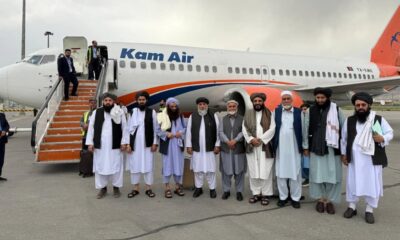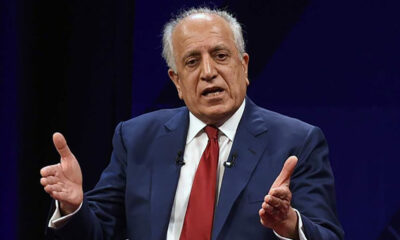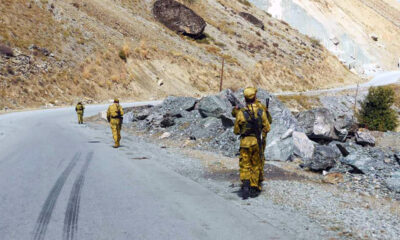Business
World Bank warns of increased poverty due to COVID-19 shock
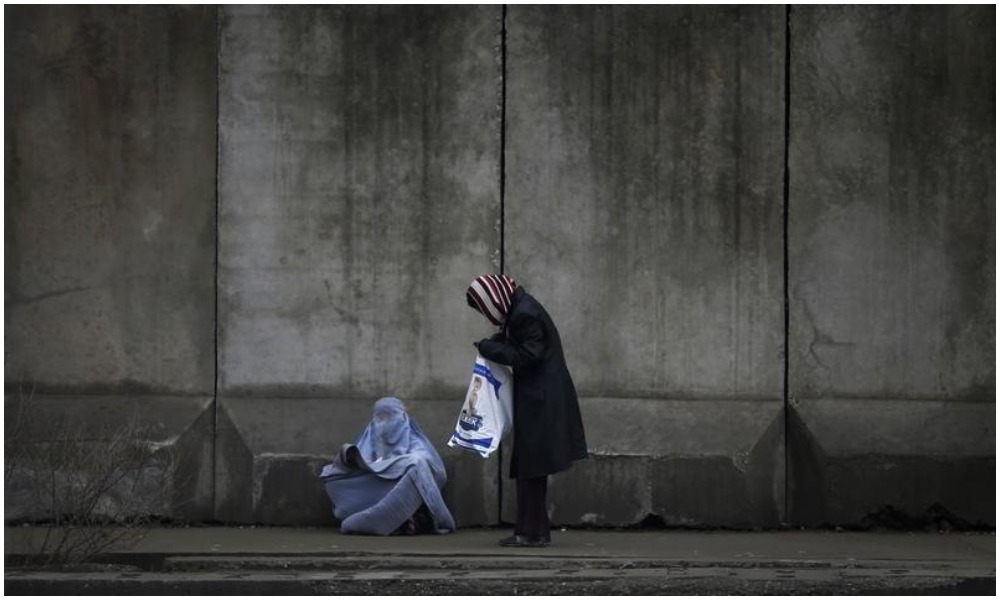
The World Bank has stated that a clear commitment from international partners to continue grant support would help reduce uncertainty and improve investor confidence in Afghanistan which would in turn enable the country to recover from the severe impacts of the COVID-19 crisis.
In its twice-yearly report, the World Bank stated that South Asia as a whole is set to plunge into its worst-ever recession due to the pandemic which will take a heavy toll on informal workers and push millions of people in the region into extreme poverty.
According to the report, although Afghanistan experienced moderate growth in 2019 as the agricultural sector recovered from the impacts of drought, the economy is estimated to have contracted sharply in the first half of 2020 due to economic disruptions associated with nation-wide lockdowns, border closures, and declining remittance inflows.
In addition, the report stated that medium-term prospects are subject to high levels of uncertainty, related to the COVID-19 pandemic, peace talks and future international security and aid support.
“Given the shock to the economy, poverty is expected to increase in 2020,” the report stated.
While there was significant growth in wheat production, the World Bank said this was not enough to offset the large negative impact of COVID-19 on other sectors of the economy.
The World Bank stated that while inflation was low in 2019 (averaging 2.3 percent) it increased significantly in 2020.
One reason was that in March and April 2020 – during lockdown – panic buying and import disruptions resulted in a sharp increase in food prices, which led government to adopt administrative measures to prevent price gouging.
Government also initiated an emergency wheat distribution program that resulted in a food inflation decline in the months that followed.
In the first quarter of 2020 Afghanistan registered a growth in exports of 11 percent year-on-year, which reflected the improved performance of air corridors. However, a weak domestic demand led to a 14 percent decline in imports.
“In the second quarter of 2020, both imports and exports fell precipitously given border closures and disruptions to trade and transportation, with greater absolute declines in imports driving an improvement in the trade and current account balances,” the report read.
With the onset of the COVID-19 crisis, weak economic activity, disruptions to trade and compliance, revenue performance deteriorated significantly and revenue estimates for 2020 were revised downward by over 30 percent (from Afs 209 billion to 144 billion) in the budget mid-year review.
“Total domestic revenue collection at end-June reached Afs 74.7 billion, 20 percent lower than the initial budget target,” the report stated.
Poverty meanwhile is believed to have worsened in 2019 surpassing 54.5 percent amid continued violence and political uncertainty and “in the first half of 2020, with declining household incomes due to economic hardship, higher food prices due to COVID-19, a significant fall in remittances, and high returnee flows, poverty is estimated to have further increased,” the report read.
According to the report, the outlook for the rest of 2020 was grim as the GDP is expected to contract by 5.5 percent – again largely due to the impact of the pandemic.
“In following years, the pace of recovery is expected to be constrained in a context of continued insecurity, uncertainties regarding the outcome of planned peace talks, and questions about the level and duration of international security and aid support.
“The trade deficit is projected to narrow to 26 percent of GDP down from 30.4 percent in 2019. While exports are projected to fall by 24 percent, imports are expected to decline by around 18 percent,” read the report.
World Bank analysis meanwhile suggests that the combination of reduced incomes and higher prices could drive the poverty rate to as high as 72 percent in the medium term.
“Over the medium term, the poverty outlook hinges on the pace of economic recovery and the continued provision of international aid and humanitarian support,” the report read.
“The main source of downside risk to the outlook stems from possible further adverse COVID-19 developments,” the World Bank stated adding that additional sources of risk include further political instability, a deterioration of security conditions, uncertainties associated with the planned peace agreement with the Taliban, and precipitous reductions in aid flow.
“By contrast, on the upside, a sustainable and credible political settlement with the Taliban could help boost growth, confidence and private investment,” the bank stated.
In terms of recommendations, the World Bank stated that given Afghanistan’s declining revenues and constrained fiscal potential, public expenditures need to be carefully directed to protecting the vulnerable, limiting long-term economic damage, and establishing solid foundations for economic recovery.
“To support households, the government should prioritize: i) targeted social protection measures; and ii) ensuring the continued provision of basic services, especially healthcare.
“To support the private sector, priorities include: i) pursuing business regulatory reforms to facilitate new investment; ii) expanding access to credit; iii) ensuring the continued provision of basic infrastructure; and iv) avoiding accumulating arrears to private sector vendors.”
Business
Gold bolts past $3,200 on dollar slide, safe-haven flows
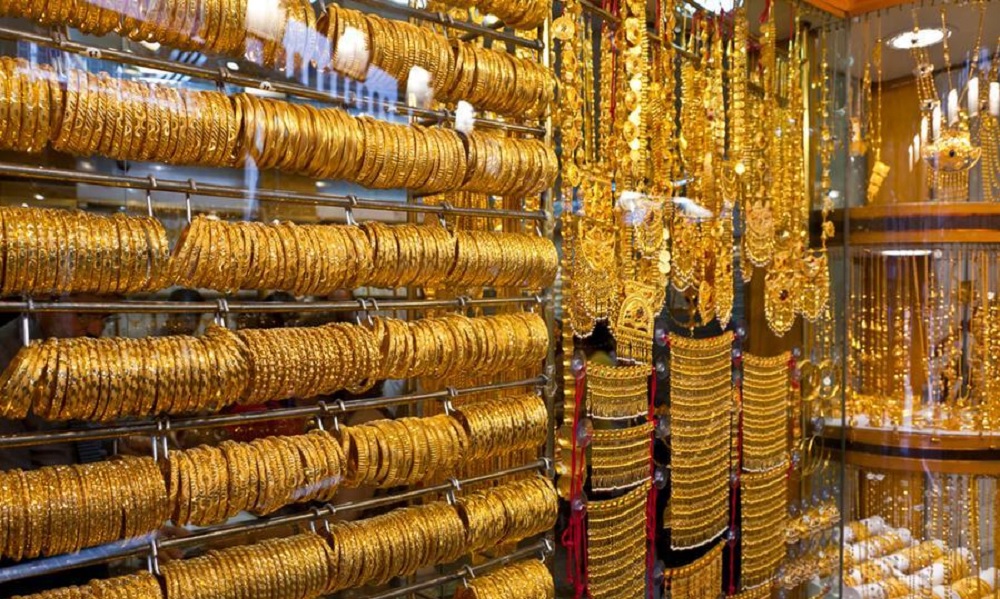
Gold prices breached the key $3,200/oz level for the first time on Friday, fuelled by a weaker dollar and an escalating trade war that sent investors rushing toward safe-haven assets.
Spot gold was up 1.4% at $3,217.78 an ounce as of 0350 GMT. Bullion scaled an all-time peak of $3,219.84 earlier in the session, and has gained almost 6% this week, Reuters reported.
U.S. gold futures climbed 1.9% to $3,237.50.
“The rapid weakening of the U.S. dollar seems to be the main driver of gold’s rebound at the moment. That seems to reflect an ongoing exodus from USD-based assets, with stocks and bonds’ selloff amid tariff policy uncertainty,” said Ilya Spivak, head of global macro at Tastylive.
The dollar was down nearly 1% against its major peers, making greenback-priced bullion cheaper for overseas buyers.
Major stock indexes also fell after U.S. President Donald Trump ratcheted up tariffs on Chinese imports to 145%, but hit a 90-day pause on previously announced tariffs for dozens of countries.
China has been matching Trump’s tariff hikes, sparking fears that Beijing could push duties on the U.S. beyond the current 84%.
“$3,500 is the next round number people will be looking at. I suspect we won’t get there immediately or without bumps along the way,” Capital.com’s financial market analyst Kyle Rodda said.
Apart from tariffs, central bank demand, expectations of interest rate cuts by the Federal Reserve, geopolitical instability in the Middle East and Europe, and increased flows into gold-backed exchange-traded funds also fuelled the metal’s rally this year.
U.S. consumer prices fell unexpectedly in March but inflation risks are tilted to the upside, data showed.
Traders now bet that the Fed will resume cutting rates in June and probably reduce by a full percentage point by the end of 2025.
Spot silver added 0.3% to $31.29 an ounce, while platinum dipped 0.1% to $936.85. Palladium gained 0.8% to $916.18.
Business
Russia, Uzbekistan to draft feasibility study for Trans-Afghan Railway project
A discussion session will be held within the framework of the Russia-Islamic World Forum in Kazan in May, bringing together key stakeholders
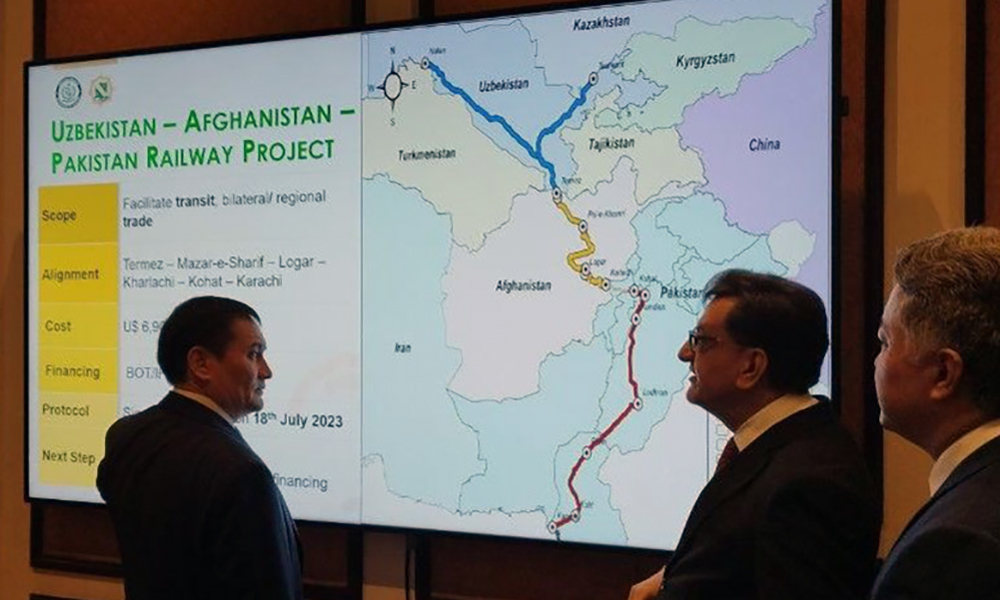
Russia and Uzbekistan design organizations will work together this year to conduct the Trans-Afghan Railway project’s feasibility study, Trend news agency reported.
According to a statement issued by Russia’s Ministry of Transport on Tuesday, Russian and Uzbek designers “will ensure the preparation of sections of the feasibility study for the project to build the Trans-Afghan Railway along the agreed routes, including in terms of determining the forecast for freight traffic volumes and economic efficiency.”
The ministry said two routes have been identified. These are: Mazar-e-Sharif – Herat – Dilaram – Kandahar – Chaman; and the other is Termez – Naibabad – Logar – Kharlachi.
The statement noted that the first session to discuss the project will be held within the framework of the Russia-Islamic World Forum in Kazan in May. A delegation from Afghanistan will attend, along with representatives from Pakistan Railways.
Business
Afghanistan business sector eager to attend Kazan Halal Expo and Forum in Russia
The forum will run from May 13 to 18 and will bring together experts from Russian regions; OIC member states; and other countries
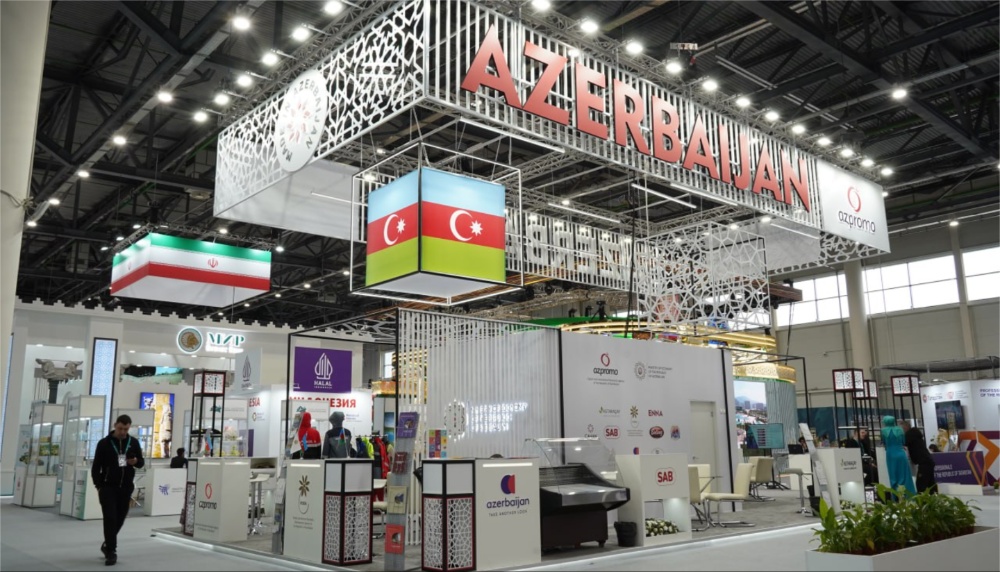
The Ministry of Industry and Commerce has confirmed that Afghanistan will participate in the XVI (16th) International Economic Forum ‘Russia — Islamic World: Kazan’ and the Kazan Halal Expo in Russia this year.
The forum will run from May 13 to 18 and will bring together experts from Russian regions; the Organization of Islamic Cooperation (OIC) member states; and other countries to discuss various topics during the 120 sessions planned.
The expo meanwhile will showcase thousands of goods from around the world that meet Halal standards.
Abdul Salam Javad Akhundzada, the ministry’s spokesman, said Sunday that Minister of Industry and Commerce Nooruddin Azizi has stated that Afghanistan is ready to participate in the event and showcase Afghan products.
According to Akhundzada, Azizi has discussed the event with members of the private sector who are eager to participate.
The expo, which is held annually alongside the forum, is Russia’s largest trading platform for Muslims.
Russia’s President Vladimir Putin said in a statement on the forum and expo recently that “Russia values its traditionally friendly ties with Muslim countries. We highly appreciate their desire to pursue an independent foreign policy and increase their role in international affairs.
“Together, we stand for the formation of a democratic multipolar world order, based on the rule of law and principles of justice, free from any form of dictatorship and discrimination.
“Of course, we are also committed to expanding mutually beneficial cooperation in all areas, from trade and investment to sports and tourism,” he said.
Putin went on to say “I believe that the work of the forum will be meaningful and constructive as always and will be held in a spirit of openness and trust. It will serve to further promote the friendship and creative partnership between our countries and peoples.”
The forum will bring together experts from Russian regions, the Organization of Islamic Cooperation (OIC) member states, and other countries to discuss:
-
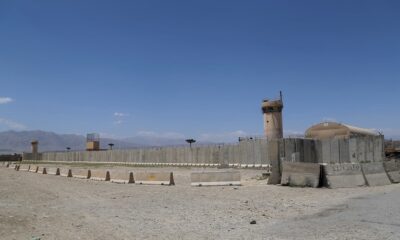
 Latest News5 days ago
Latest News5 days agoNo American military presence in Bagram: US defense official
-
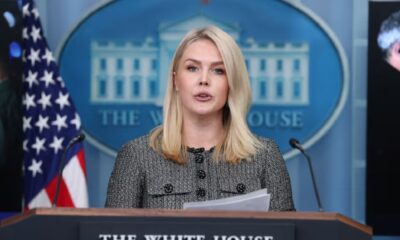
 World5 days ago
World5 days agoWhite House says ‘all hell to pay’ should Iran develop nuclear weapon
-

 Latest News5 days ago
Latest News5 days agoTrump ends protected status for thousands of Afghans, Cameroonians
-
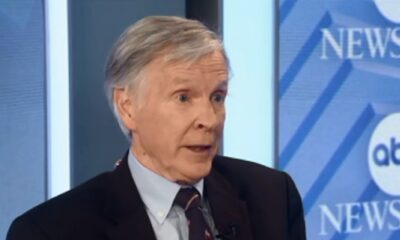
 Latest News5 days ago
Latest News5 days ago‘No one wants to see a nuclear-armed Iran,’ says former US ambassador to Afghanistan
-
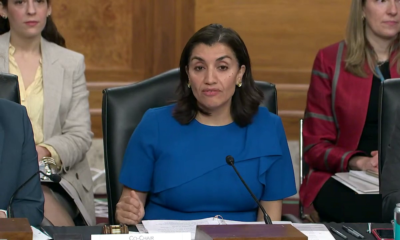
 Latest News4 days ago
Latest News4 days agoUS Senate convenes commission to review early years of Afghanistan war
-
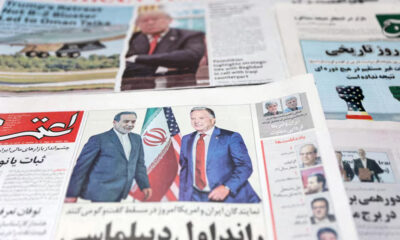
 Regional4 days ago
Regional4 days agoIran, US hold ‘positive’ talks in Oman, agree to resume next week
-
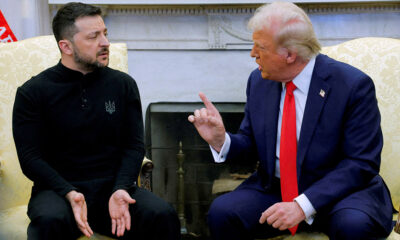
 World4 days ago
World4 days agoTrump says Ukraine talks may be going OK, but there is a time ‘to put up or shut up’
-

 Latest News4 days ago
Latest News4 days ago6.1-magnitude earthquake shakes northern Afghanistan




